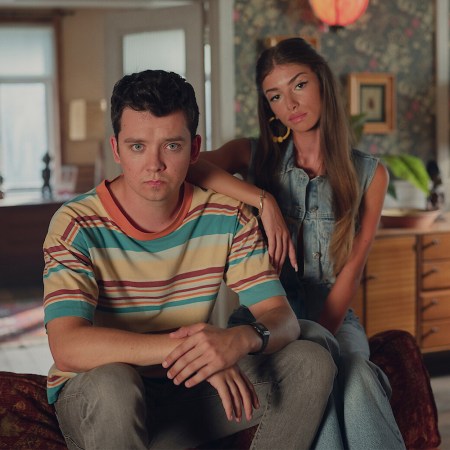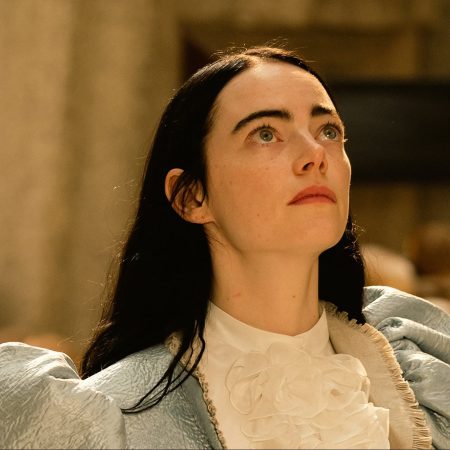Movies tend to make artists look cool. Of course they do — they’re made by artists. On screen, writers and painters become rock stars, and rock stars become gods among men. They’re romanticized, sensationalized, mythologized. Even the true scoundrels of the art world shine under the spotlight of a movie camera: Ernest Hemingway and J. M. W. Turner may have been bastards, but there’s no reason they can’t be entertaining bastards, larger than life in their flaws and quirks.
The truth, though, is that plenty of artists are not magnetic people. Some, in fact, are rather anti-social and uncharismatic — and the chances of that go way up when you’re looking past the performers of the world to those who do their work offstage or off-camera, behind a keyboard or in front of an easel. Where’s the representation for the truly unlikable artists? This year, they finally got some, through a bumper crop of international indies built around characters the average person would probably prefer not to spend much time with. Grouches, pricks, creeps: Prepare to be seen. Your moment in the cinematic sun has arrived.
“Prickly” might be the best word to describe Lizzy, the struggling sculptor Michelle Williams plays in Kelly Reichardt’s shaggy, low-key, art-world comedy Showing Up. It’s with a rather perennial, harried grumpiness that the character engages with the bohemian Portland where she lives and works; an invisible storm cloud seems to hang over her head at all times, darkening every conversation and encounter. Reichardt does more than deglamorize her muse. She encourages Williams to drain every drop of movie-star charm and radiance from her palette — to unleash her inner Eeyore.
Lizzy’s peevishness is the emotional fulcrum of the movie, and its comic fuel. Reichardt gets some very dry humor out of the way her dourness clashes with the hippie-dippy nonchalance of the creative people around her, including a pitch-perfect Hong Chau as a fellow local artist and frenemy with a much more relaxed outlook (related, it’s implied, to her greater financial security). Cracks will eventually form in Lizzy’s walls, letting a few glimmers of empathy and affection trickle through. But Williams remains committed to her portrait of a struggling artist who mostly sees life as a series of hassles.
Maybe she’s just irritated with all the obstacles placed in the way of her getting any damn work done. Even those in the audience unsympathetic to Lizzy’s sour attitude might find her quest for a few uninterrupted hours relatable. That she only looks truly content when hunched over ceramic — a process Reichardt depicts with curiosity and in fleeting detail — speaks to the true source of her consistently lousy mood: the uphill battle of trying to carve out time for what gives your life meaning.
Lizzy looks like a sunbeam of positivity compared to Leon (Thomas Schubert), the budding novelist at the center of Christian Petzold’s Afire. Leon’s default setting is a kind of hostile introversion, fired at anyone trying to drag him out of his shell on an artist’s retreat at a vacation house near the Baltic Sea. As in Showing Up, there’s sly comedy in the collision of the protagonist’s pessimism and the lighter, more easygoing nature of the other characters. But Leon is a challenge for housemates and viewers alike: Just how sullen and standoffish can someone be before you give up on trying to connect with them at all?
Chronic procrastinators, at least, might feel his pain. If Lizzy would give anything for just a little more time to devote to her craft, Leon has lots of time but little motivation to use it productively. Afire speaks to the purgatorial bummer of trying to get something done when you’re distracted and everyone else seems to just be having a good time; among other things, it’s a portrait of the artist as a restless kid stuck inside during summer vacation, a stack of homework untouched on his desk.
Through Leon, Petzold is really savaging the comforting delusions and pretensions of a certain kind of socially dysfunctional artist. Of all the shields the character puts up, the strongest might be his self-aggrandizing assumption that if he’s not the life of the party, he’s still the smartest person in the room. But what if he’s not? The cruel comedy of Afire lies in watching someone realize that he may not even be creatively superior to the outgoing friends and strangers having more fun than him.
Tomas, the Parisian moviemaker at the center of Ira Sachs’ Passages, isn’t quite as unsociable as Lizzy or Leon. In fact, you could argue there is something magnetic about him, as evidenced by his strong hold over two attractive lovers: his graphic-artist husband Martin (Ben Whisaw) and the younger schoolteacher with whom he has an affair, Agathe (Adèle Exarchopoulos). If Tomas is deeply, almost unfathomably unlikable, that’s mostly a matter of his casual callousness. He’s an incorrigible fuckboy, fickle in his desires and careless in the games he plays with the hearts of his supposed loved ones.
What’s interesting is that Franz Rogowski, the thirsted-after German actor in the lead, doesn’t really give Tomas the traditional vibe of a charming lothario. He makes him weird, moody, petulant, and — physically speaking — almost birdlike in his movements. He’s basically an emotionally stunted child, wreaking havoc on the lives of his partners with selfish indifference. This guy is irresistible to men and women alike?
“Passages” Director Ira Sachs Wants to Bring Eroticism Back to American Cinema
The filmmaker describes his movie’s controversial NC-17 rating as “censorship”There’s a point, and maybe a sly joke, in the disconnect between Tomas’ off-putting personality and the spell he seems to cast over everyone. Maybe it’s the aura of genius, or at least professional clout, that makes him attractive. While Lizzy toils in relative obscurity (or at least purely regional renown) and Leon pines for recognition he hasn’t yet earned or received, Tomas has a healthy career and a high profile. Passages seems to say that, setting aside the work itself (we never see even a glimpse of the man’s films), one of the perks of becoming a successful artist is that people will look past your unattractive qualities and forgive your worst transgressions. Even a weasel like Tomas becomes desirable in the glow of acclaim.
None of these movies indulge a romantic outlook on artists or the supposedly transformative power of art. They’re all variably unsentimental character studies about people whose creative pursuits don’t necessarily fulfill them or make them happy. Each is less interested in the artwork their protagonists create than why they create. For Lizzy, it could be a way to cope with the kind of minor hardships, humiliations and annoyances that otherwise fill her days. For Leon, it’s a consolation prize, something to feed his self-image. And for Tomas, it’s a form of control, a way to bend the world to his precise desires.
Of course, likability is all in the eyes of the beholder. And for every viewer repelled by the main characters of Showing Up, Afire and Passages, there might be another who catches a glimpse of themselves in the unflattering mirrors these movies hold up to the creative class. Somewhere between the hagiography of a Great Man biopic and the chronicle of an infamous showbiz monster lie the more mundane character flaws of Lizzy, Leon and Tomas. Jealous? Temperamental? Capricious? Artists, they’re just like us at our worst!
This article appeared in an InsideHook newsletter. Sign up for free to get more on travel, wellness, style, drinking, and culture.

























